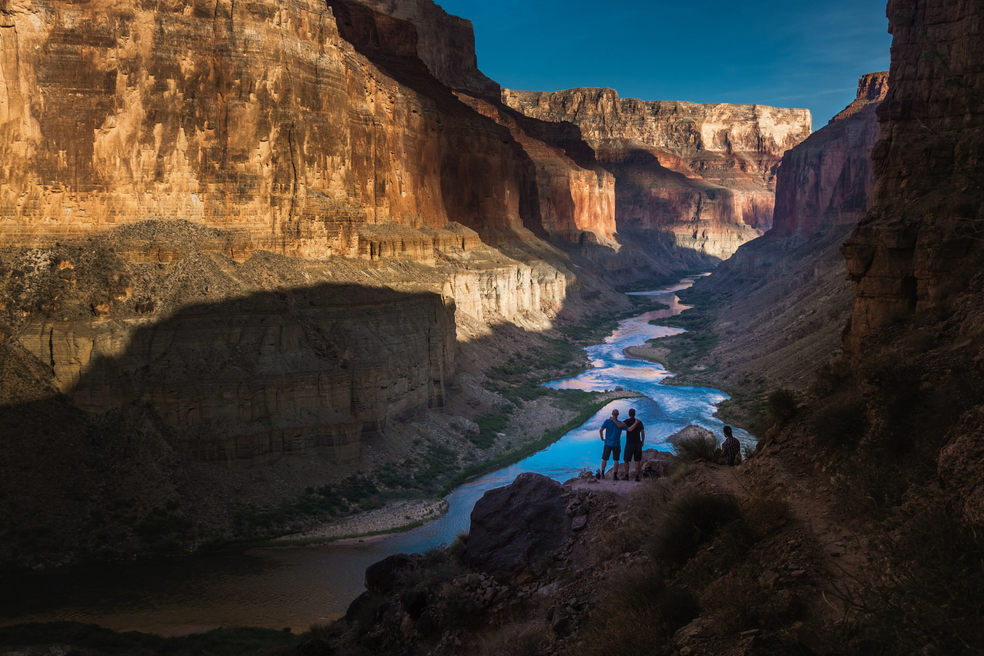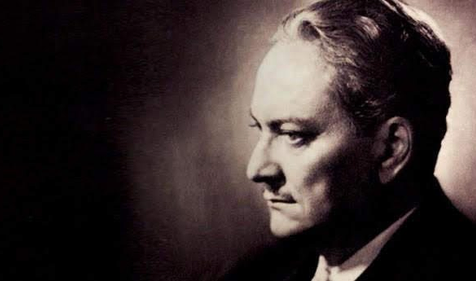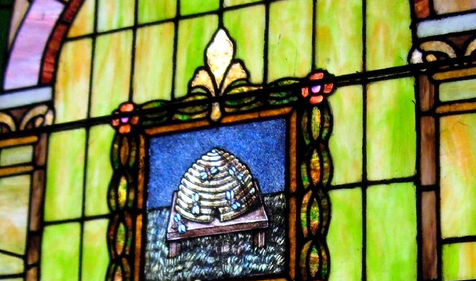On March 21, we hosted an interactive livestream on “How Fraternalism Transform Character." The discussion was led by Brothers John Sullivan, 33°, Valley of Worcester, MA, and William “Sandy” Karstens, 33°, Valley of Burlington, VT. Brother Len Cercone served as the moderator, The panel explored the dynamics of Freemasonry in society, fraternalism’s place with with younger generations, and how members can embody the moral obligations instilled in Freemasonry in their everyday lives.
We compiled our favorite discussion points and questions below – many of which were posed by the audience – and the insights delivered by Brothers Sullivan and Karstens. If you would like to see the livestream in its entirety, you can watch it below.
We hear the word “fraternity”. We know what a fraternity is. But how exactly does fraternalism transform character and how can translate it into our lives?
"We’re not going to change the tide of society on a dime, but by being present, by being a bigger presence in the community and involved in these men’s lives as Freemasons, and showing that this is where you can come to gain that strength to stand up for your values without compromise, then we’re going to prevail in the long run."
John Sullivan, 33°
KARSTENS: I think fraternity might be more of an umbrella concept, in which you’ve got fraternities on campus, and you’ve got a fraternity of people or folks that are getting together. The sense of brotherhood, however, might lend itself to a much deeper current. There’s something about the term brotherhood for me that is more profound than just simply a bunch of guys who know each other.
SULLIVAN: I think the core of it is example. There are wonderful examples in the Freemasonry of men who are doing good works in their everyday lives. What they bring to their community, what they bring to their family, what they bring to the lodge, and how does that example then translate? How does a young man or a man coming into this fraternity sit and watch and learn by example what these Brothers are doing? And to me that’s where the transformation begins. We learn the values and we learn the tenets and all the things that the degrees tell us. Then you are able to actually see that in a living example of a man as you get to know him, acquire a deeper understanding of what he does for a living, what his family is all about and how he comports himself.
How can Masons effect change, especially with the younger generation?
KARSTENS: You bring a man in and you show him what it’s about, and then it spreads. If you entice these individuals with a situation where they are surrounded by good people with a certain moral standing, compared to what they see in the everyday world, they come in. They see what we do, go back out into the world, and with that they’ve already begun to transform.
SULLIVAN: The younger generation is searching for the values of Freemasonry. They are searching for a place where they can actually be part of something greater than themselves and learn the next right thing to do that doesn’t come from the street or unfiltered in society. There is a great desire among the younger generation to really attach themselves to something that is going to give them those values, those core things that they know that they want and they need, but they just don't know exactly where to get it. Freemasonry has always been there for that.
Tonight’s subject has two very powerful words character and transformation. What type of transformation are we talking about? What type of character traits are we trying to instill in the Brothers of the fraternity?
SULLIVAN: When you look at the Old English words that we use in our degrees – words like prudence and tolerance – they are words that you don't hear often in society, yet the founding fathers of this country and of Freemasonry chose those words very specifically. These words reference character, and it’s up to the individual Mason to delve into the subject of prudence and say, how does this affect me and how can I embody it? That lends itself to another Brother delving into his own character and saying, how can I do that? And it’s easier to understand it once you get involved in Freemasonry and you see how other men are being prudent in their lives.
At the Blue Lodge level, how can Brothers bring someone to the tenets beyond using the ritual itself?
KARSTENS: I like to think of Masonry as a way of life that you adopt. It becomes a part of you. It’s infused in what you do and everything that is part of you. So ultimately, I think that you encourage these folks to realize that, yeah, you go to a meeting and that’s a way to meet the Brothers one-on-one to and see them again. But, you should also take home the things that you’ve learned in the lodge.
SULLIVAN: In today’s society where everybody is really challenged for their time, the idea of being available to a Brother outside the lodge is a challenge in and of itself. And we’re not necessarily social workers, but we are Brothers, and Brothers listen and they take the time to be there for their brethren. So that is a challenge, and I think it’s something that becomes instilled in a lodge that cares for each of its members.
KARSTENS: To go a little bit further on this, meetings don't necessarily have to be formal. A lot of times now we see Brothers have regular social times at the local pub, to have a great time together. That’s the Brotherhood that’s happening, and then it stems off from there.
As longtime folks in the fraternity, how do we bring people back together?
SULLIVAN: Actions speak louder than words. We’ve been giving lip service to a lot of things for a long time, but our actions have not followed suit. And to bring these brethren back, it takes things like this livestream. Initiatives where we’re being honest about the issues and acknowledging the problems our Brothers face – whether he was unfairly treated in his lodge or couldn’t learn ritual – and then taking some action within the fraternity.
KARSTENS: The lodge itself can be transformative. A lodge might get stuck in a certain way in which you’ve always done things. There comes a certain point when you say, we’re tired of the old meetings that we’ve always had, how can we do something different? Or, I noticed that some Brothers haven’t shown up. Has anybody contacted them? Why don't we contact them and find out, are you OK? Ultimately to make a connection, and you might get a little bit of data on what’s been going on. It’s also hard for me to bring my wife. I'd like to have some more family activities. I have kids right now. My job is really overwhelming. That’s where you get your group of Brothers to roundtable together and say, here are the issues we’re confronting. Let’s put our heads together and figure out what to do.
How does Masonry, and Scottish Rite for that matter, remain relevant?
SULLIVAN: I think Masons are ultimately going to finish first, because in the long run this is where core values live. Even though society has a tendency to ebb and flow with the tide, the basic core values of humanity stay the same. We talked earlier just off air about the tremendously sad things happening with school shootings and wonder, where did these young men lose their way? And we’re not going to change the tide of society on a dime, but by being present, by being a bigger presence in the community and involved in these men’s lives as Freemasons, and showing that this is where you can come to gain that strength to stand up for your values without compromise, then we’re going to prevail in the long run.
Tell me how being a member of Scottish Rite has helped you in your personal life or your professional life? Is there a specific degree that taught you a lesson that translated into a real-world situation.
KARSTENS: Certainly, from the perspective of just getting into an organization like the Scottish Rite, it’s more of an umbrella process. You’re in a little silo lodge. Maybe you visit a couple of other lodges, but ultimately when you plug into Scottish Rite, suddenly you’re into a larger organization that straddles many lodges. Now you’ve got a much bigger community of brethren to communicate with and talk to. One degree I'll bring up is the 14th degree and it’s a different kind of style from some of the other degrees. It’s a little bit more solemn and it’s very quiet. There’s a section in there that asks you to reflect on your actions in the world. Have you treated people fairly? Have you been honest to your Brothers? You're asked to consider if you’ve thought about this, and it’s really very powerful.
What do you hope people get out of this livestream?
"Things are changing. It really is happening. This is a pivotal time for Freemasonry, a new launching point where I hope men will see that we’re doing and say, “That’s exactly what I've been looking for.”
William “Sandy” Karstens, 33°
SULLIVAN: If you’re a new Mason, jump in with both feet. There’s so much there that you can indulge yourself in, and it really is going to provide you with the answers you’ve been looking for. If you’re a demitted Brother, come back. Come back and find what it is you were looking for, because it’s different than it was. I think you’ll find that the opportunities that you were originally seeking are there for you now. If you’re an old-timer, if you’ve been around for a while and you’re a part of the fabric of your lodge, make sure that you are an example on a daily basis and that you’re reaching out to those new members, whether they’re young or old, and giving them the guidance they need to get the best out of themselves.
KARSTENS: Things are changing. It really is happening. This is a pivotal time for Freemasonry, a new launching point where I hope men will see that we’re doing and say, “That’s exactly what I've been looking for.”
We will announce the date and topic of our next livestream very soon. In the meantime, sign up for our newsletter to stay up-to-date on all upcoming events.
Related Stories
Discover additional Scottish Rite blogs and news on this topic.
-
Manly P. Hall: Philosopher, Mystic, and Freemason
Famous Masons
Read More about Manly P. Hall: Philosopher, Mystic, and Freemason
-
What Does the Beehive Mean in Freemasonry?
Degrees
Read More about What Does the Beehive Mean in Freemasonry?
-
Was Robert Burns a Freemason?
Famous Masons
Read More about Was Robert Burns a Freemason?



